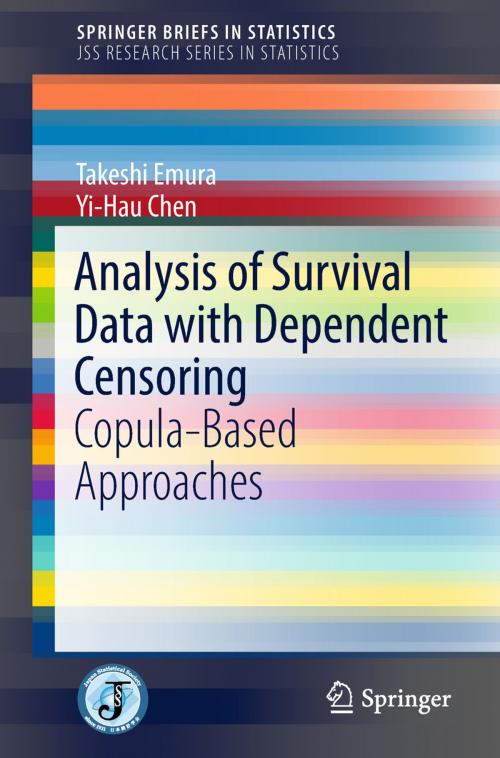Analysis of Survival Data with Dependent Censoring
Copula-Based Approaches
Nonfiction, Health & Well Being, Medical, Reference, Biostatistics, Science & Nature, Mathematics, Statistics| Author: | Takeshi Emura, Yi-Hau Chen | ISBN: | 9789811071645 |
| Publisher: | Springer Singapore | Publication: | April 5, 2018 |
| Imprint: | Springer | Language: | English |
| Author: | Takeshi Emura, Yi-Hau Chen |
| ISBN: | 9789811071645 |
| Publisher: | Springer Singapore |
| Publication: | April 5, 2018 |
| Imprint: | Springer |
| Language: | English |
This book introduces readers to copula-based statistical methods for analyzing survival data involving dependent censoring. Primarily focusing on likelihood-based methods performed under copula models, it is the first book solely devoted to the problem of dependent censoring.
The book demonstrates the advantages of the copula-based methods in the context of medical research, especially with regard to cancer patients’ survival data. Needless to say, the statistical methods presented here can also be applied to many other branches of science, especially in reliability, where survival analysis plays an important role.
The book can be used as a textbook for graduate coursework or a short course aimed at (bio-) statisticians. To deepen readers’ understanding of copula-based approaches, the book provides an accessible introduction to basic survival analysis and explains the mathematical foundations of copula-based survival models.
This book introduces readers to copula-based statistical methods for analyzing survival data involving dependent censoring. Primarily focusing on likelihood-based methods performed under copula models, it is the first book solely devoted to the problem of dependent censoring.
The book demonstrates the advantages of the copula-based methods in the context of medical research, especially with regard to cancer patients’ survival data. Needless to say, the statistical methods presented here can also be applied to many other branches of science, especially in reliability, where survival analysis plays an important role.
The book can be used as a textbook for graduate coursework or a short course aimed at (bio-) statisticians. To deepen readers’ understanding of copula-based approaches, the book provides an accessible introduction to basic survival analysis and explains the mathematical foundations of copula-based survival models.















